Itinerary
Tour day-by-day
-

Day 1: Fogg Dam Reserve & Kakadu National Park
Guests will venture towards the World Heritage Listed Kakadu National Park via the magnificent Fogg Dam Reserve. These wetlands fringed by rainforest are a birdwatchers paradise, with year round water coverage assuring its position as an important feeding and roosting site for over 200 different bird species, water pythons and freshwater turtles. Forest Kingfishers, egrets, ibis, herons, Whistling Kites, Brown Falcons, Green Pygmy Geese, cormorants and monitor lizards are common sightings.
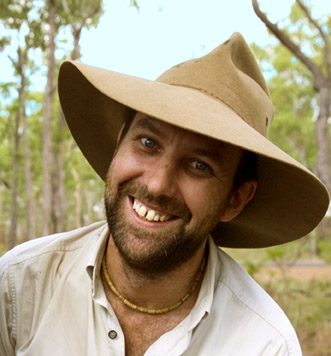 “Fogg Dam is a location where we often see birds en masse, and it’s a very interesting setting because it’s a dam wall, with lush wetlands on one side and dry wetlands and grasslands on the other. Ducks and ibises abound in huge numbers in the wetlands, while Magpie Geese, spoonbills, brolgas and jabirus are easily spotted on the dry side. Some guests have never seen so many birds in one place and on such a scale. We’re talking thousands and thousands of birds at the one time.”
“Fogg Dam is a location where we often see birds en masse, and it’s a very interesting setting because it’s a dam wall, with lush wetlands on one side and dry wetlands and grasslands on the other. Ducks and ibises abound in huge numbers in the wetlands, while Magpie Geese, spoonbills, brolgas and jabirus are easily spotted on the dry side. Some guests have never seen so many birds in one place and on such a scale. We’re talking thousands and thousands of birds at the one time.”Dean Hoath - Guide
A short detour off the highway is the beautiful Leaning Tree Lagoon; this Billabong is often covered in water lilies making it a popular quick stop for photographers. We will leave the main road to enter into Kakadu via the Old Darwin Road. Our last stop for today is a pristine waterfall, Maguk (Barramundi Gorge). A one Kilometre walk through monsoon rainforest leads to the base of a beautiful plunge pool: Maguk is a scenic and tranquil place to enjoy a refreshing swim in the series of small waterholes. The water is crystal clear.
Overnight Accommodation: Lords Private Tented Camp
-

Day 2: Kakadu National Park & Arnhem Land
Departing the Northern region of Kakadu National Park, guests will cross the East Alligator River and enter Arnhem Land. The scenic drive to the Gunbalanya Aboriginal community provides some of the best driving views in the Top End with floodplains, billabongs & the Arnhem Land escarpment.
We shall then head up into Mikinj Valley where you shall be able to see some amazing Rock art & some incredible views. This is a very special place not only for the local people but for the Lord Safaris. Then after lunch onto Gunbalanya guests will visit the Injalak Arts and Craft Centre to meet and watch traditional local artists in action.
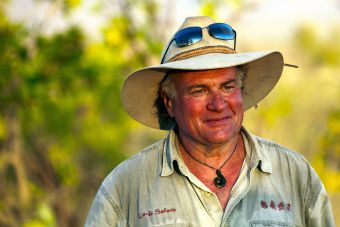 “I have known the Nayingguls family since the 1960s, and this strong connection to the land and its rich history is something that we are all able to share with safari guests. The majority of people who come here want to see a couple of good waterfalls and experience the landscape. I know where to take them, and since the area is exclusive to us, it’s really only myself and the local Aboriginal people who know where to go. It’s our secret sanctuary."
“I have known the Nayingguls family since the 1960s, and this strong connection to the land and its rich history is something that we are all able to share with safari guests. The majority of people who come here want to see a couple of good waterfalls and experience the landscape. I know where to take them, and since the area is exclusive to us, it’s really only myself and the local Aboriginal people who know where to go. It’s our secret sanctuary."Sab Lord - Guide & Founder
Across the sandstone escarpments, visitors may spot the Brolga, Black Necked Stork (Jabirus), honeyeaters, Sandstone Thrush, Black Wallaroo, Chestnut-quilled Rock Pigeon, Wilkins' Rock Wallaby, Channel-billed Cuckoo, Pheasant Coucal and the Fire-tailed Skink. Davidson’s Arnhemland Safaris lodge is the next stop, situated in the northwest corner of Arnhem Land, adjacent to Kakadu National Park and the Coburg Peninsula.
Overnight Accommodation: Davidson’s Arnhemland Safaris Lodge
-

Day 3: Arnhem Land
Davidson’s Arnhemland Safaris at Mt Borradaile is a registered Aboriginal sacred site nestled against the majestic Arnhem Land escarpment. This is a landscape of rugged ranges fringed by idyllic billabongs, flood plains, paperbark swamps and monsoonal rainforests. Valleys, overhangs and caves have been occupied for over 50,000 years and offer magnificent galleries of rock art as well as occupation and burial sites.
Whilst visiting Davidson's, guests will enjoy Aboriginal Art, billabong cruises and wetlands exploration to spot numerous species including Agile, Wilkins' Rock and Nabarlek Wallabies, Ghost Bats, flying foxes, Freshwater and Saltwater Crocodiles, Dingos, Leichhardt Grasshoppers, Jabirus, Brolgas, egrets, kingfishers, Blue Winged Kookaburras, Red Tailed Black Cockatoos, Red Winged Parrots, Black Tailed Tree Creepers, White-faced and White-bellied Cuckoos and various Honeyeaters.
Overnight Accommodation: Davidson’s Arnhemland Safaris Lodge
-

Day 4: Bamurru Plains
Upon departing from Davidson's, guests will venture to Bamurru Plains located on the magnificent Mary River floodplains. This safari-style camp boasts comfortable free-standing rooms that are spacious and expose guests to the sounds of the floodplains, a dining area with commanding views across the vast wetlands, a 10 metre wet edge pool and a library.
The focus of the stay at Bamurru is the surrounding savannah woodland teeming with an amazing assortment of wildlife, reptiles and birds. This picturesque property covers various habitats including black soil flood plains, paperbark swamps, savannah woodlands, river mangroves and coastal beaches supporting an extraordinary diversity of birdlife.
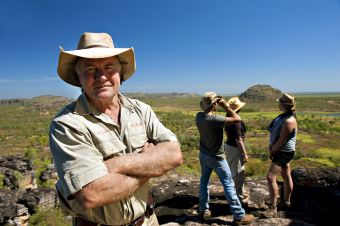 “We see White-bellied Sea Eagles, jabirus, jacanas, five species of ducks, three species of ibises, four species of egrets... just to name some of the birds we might come across. I chat to guests about the birds, and also talk about the impact various introduced feral species – such as cats and foxes – have on both the birds and the environment. I want to educate people for as long as I am able to. We only have one environment and if we don’t care of it, what are our kids going to have?”
“We see White-bellied Sea Eagles, jabirus, jacanas, five species of ducks, three species of ibises, four species of egrets... just to name some of the birds we might come across. I chat to guests about the birds, and also talk about the impact various introduced feral species – such as cats and foxes – have on both the birds and the environment. I want to educate people for as long as I am able to. We only have one environment and if we don’t care of it, what are our kids going to have?”Sab Lord - Guide & Founder
Overnight Accommodation: Bamurru Plains
-

Day 5: Bamurru Plains
Spending the day at Bamarru, guests will have a choice of a variety of activities, from airboat rides to a four wheel drive safaris. A morning airboat ride across the floodplains of the Mary River catchments is an exhilarating way to see the the abundant wildlife such as Agile Wallabies, Saltwater Crocodiles, Jabirus, Brolgas, Magpie Geese, Great Billed Herons, Azure Kingfishers, Blue Winged Kookaburras, Red Tailed Black Cockatoos, Red Winged Parrots, lorikeets, honeyeaters, cuckoos, monitor lizards, Australian Bustard, curlews, falcons, Wedge-tailed eagles and Whistling Kites.
Overnight Accommodation: Bamurru Plains
-

Day 6: Bamurru Plains to Darwin
Before returning to Darwin, guests will have the opportunity for a leisurely breakfast whilst listening to he morning chorus of tens of thousands of Magpie Geese, after whom the camp is named. The Mary River catchments is home to some 236 species of bird, many of which are found at Bamurru Plains.
-

Tour details
Private Group Size: Maximum 6 guests.
Pick-up and Drop Off Point: Darwin
Pick-up and Drop-off Time: Approximately 8:00am, returns at approximately 5:00pm.How you'll be making a positive impact
We have aligned our sustainability vision with the United Nation’s Sustainable Development Goals (SDGs).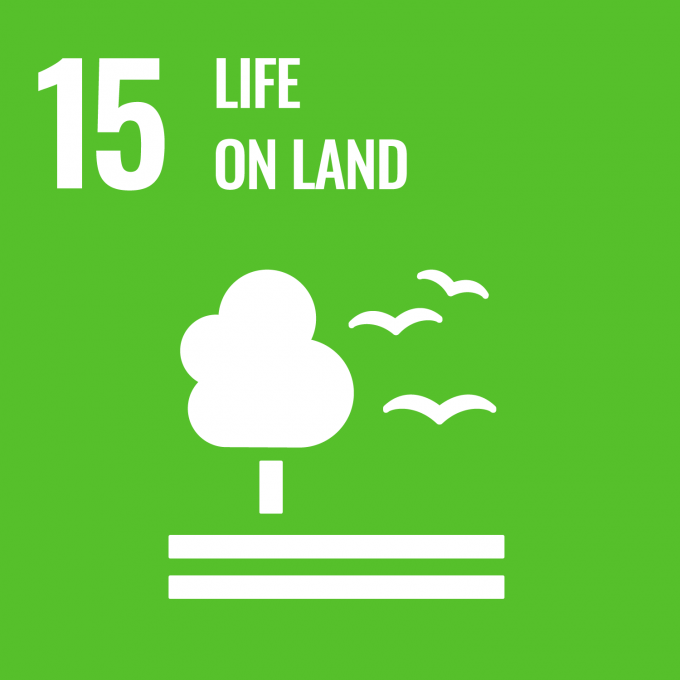 Citizen Science with Lords Kakadu & Arnhemland Safaris
Citizen Science with Lords Kakadu & Arnhemland Safaris
Lords Kakadu & Arnhemland Safaris contributes observations of flora & fauna via iNaturalist, the world’s leading global social biodiversity network. This platform allows our team to create research-quality citizen science data that enables a more detailed picture of our national biodiversity, and assists bodies such as the CSIRO, ecologists and other decision makers to deliver better outcomes for the environment and our species.
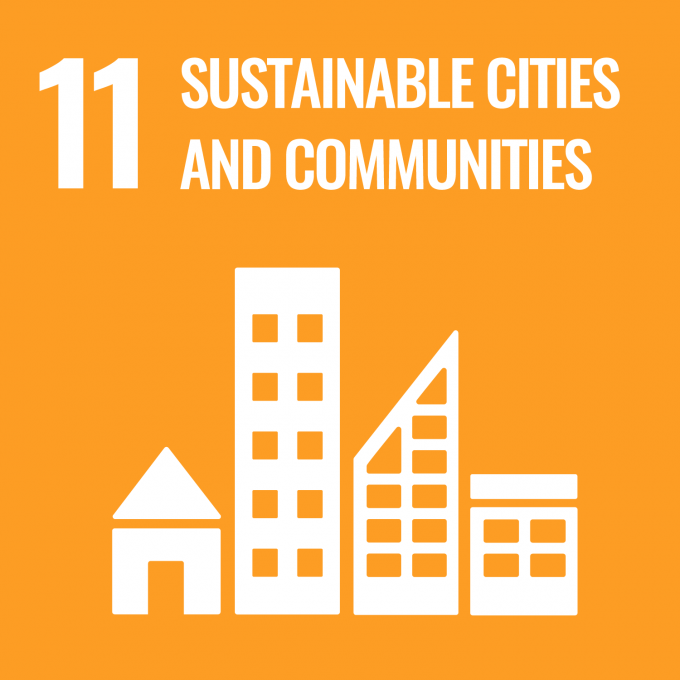 Supporting the Communities of Arnhem Land
Supporting the Communities of Arnhem Land
Lords Kakadu & Arnhemland Safaris has spent decades working closely with local Aboriginal clans and share a mutual respect with the local indigenous people and their relationship with the land. Owner, Sab Lord, was raised on a station that is now part of World Heritage-listed Kakadu National Park, with his father employing Aboriginal families who taught him their indigenous language and involved him in traditional ceremonies.
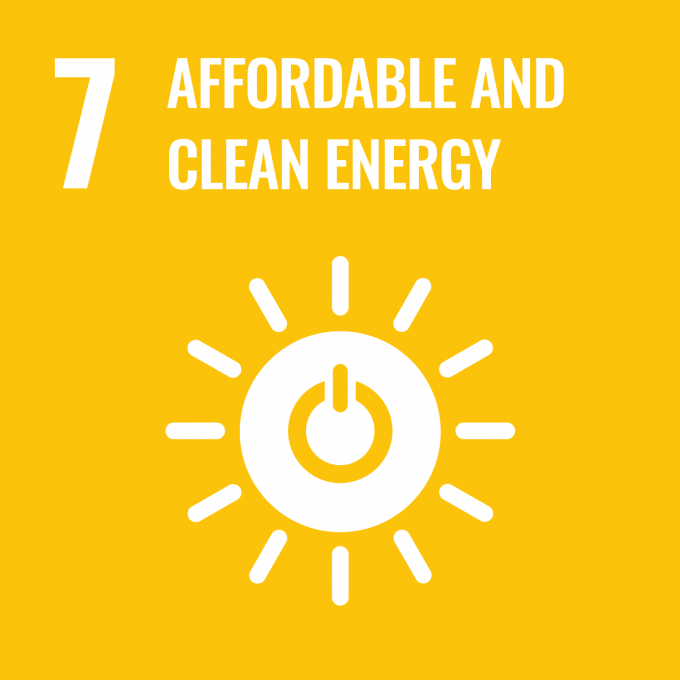 Solar-powered Bush Camp
Solar-powered Bush Camp
Lords Kakadu & Arnhemland Safaris operate a permanent Kakadu Bush Camp, almost entirely energy neutral, with solar panels powering lighting, fridges and fans. Australian Wildlife Journeys is in the process of setting science-based targets, implementing mechanisms to enable the calculation of carbon emissions across all organisation types and decreasing emissions through technological advancements in hybrid and hydrogen technologies.
Media Gallery
-

Kakadu Birding Tour
From $2,060 USD
3 days/2 nights
Available months: May to October.
-

Ultimate Birdwatching Australia - Tropics to Outback
From $11,230 USD
15 days/14 nights
Available months: April to October.
-

Reefs, Rainforests and Savannah
From $5,580 USD
8 days/7 nights
Available months: April to October.













